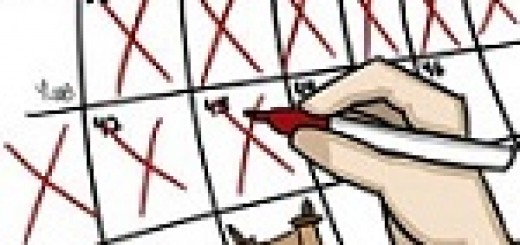By: Morah Esther Markel
Have you ever noticed the way Jews always answer one question with another question? Well, let me ask you a question; how else should they answer?
The Jews go back a long way with this question-asking thing and we seem to be a perpetually inquisitive nation. A brief look at all the scientific discoveries of so many Jews shows that Jews are a rather curious people. In fact, I believe that the secret of inspiring our children so that their Judaism remains with them forever is to teach them to ask questions.
One of the people that we learn this from is the greatest teacher and leader of the Jewish people, Moshe Rabeinu. In fact, Moshes’s path to becoming a leader begins with him expressing his curiosity.
Imagine, there was Moshe, tending his father-in-law Yisro’s sheep in the desert when he happened on a burning bush. Interestingly though, the bush didn’t burn. Moshe was curious about this and his immediate reaction was to say to himself, “Let me look around and see why this bush isn’t burning.” Only then, after he went to search for G-d in this phenomenon and acted to examine what he saw, did Hashem speak to him.
The entire Pesach Seder is about question-asking. Everything that we do during the Seder is to encourage curiosity. In fact, certain things are done that have no answer at all. Their only intent is that they are methods to heighten our children’s inquisitiveness. Why do we dip a vegetable in salt water? One of the reasons given is to get the children thinking and asking.
Indeed, the highlight of the Seder night is the asking of the four questions—where our children get up and ask why this night is different than all others and about all the peculiar things that we do in it. And what does one do if one happens to be alone during the Seder night? Does one skip that part—after all, there is nobody to ask? Not at all, our rabbis tell us. In fact, one asks the questions anyways, even if there is nobody to answer. It seems that question asking is a “big deal” in Judaism.
Judaism teaches us that our questions are crucial. Not only are our questions allowed, they’re very much encouraged. When we have the courage to ask than we have the ability to get an answer. It is when we are not asking questions that there is cause for worry.
Last week a parent called me, concerned. “My son has so many questions in faith,” she shared with me. She seemed disheartened. I, on the other hand, was elated. He has questions? That means he’s seeking, he wants to understand, he wants to learn and grow. Teach him to ask his questions, and find a passionate role model for him who could help him find the answers he seeks.
In order for Judaism to have meaning to our children they need to feel an enthusiasm and passion for it. We want our children to live inspired lives; we need to show them that that we value their thoughts and ideas and especially their questions. In order to encourage them to learn we must encourage them to ask. Only then can they turn to their children and answer the questions that they are asked. So the next time we ask a question we should think to ourselves; maybe we’re closer to Hashem when we ask—than when we think we know all the answers.
Morah Esther Markel is an educator par excellence. Over the past 35 years of her teaching career she has taught the full educational gamut. She has served as an educator on all levels—beginning as a nursery school teacher and director, after which she continued on to teach every single grade of elementary school, from pre-K to eighth grade. She currently serves as the Judaic principal of the Conejo Jewish Day School (CJDS).Greatly loved by all who know her, she is affectionately referred to as “Morah Esther” by her thousands of students. She is passionate about instilling strong Jewish values and a love for Torah in all her “children.”






















